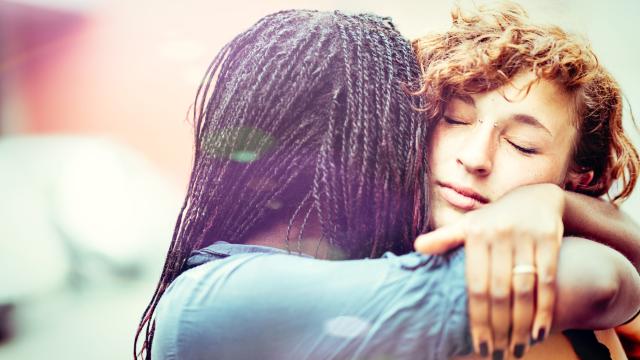Warning: the following article deals with the topic of domestic violence and abuse. It may be triggering for some. If you are in need of support, please contact 1800RESPECT or call Lifeline on 13 11 14.
November 20th is White Ribbon Day.
It is a day in Australia dedicated to building awareness around, and addressing the dangers of, violence against women.
According to White Ribbon Australia, data shows that on average, one woman is murdered every week by her partner.
By the age of 15, one in four women will have experienced emotional abuse from a partner (current or former).
A staggering one in five women will have experienced sexual violence since the age of 15.
85 per cent of Australian women have first-hand experience with sexual harassment.
Close to 40 per cent of women have experienced violence from a partner while temporarily separated.
And one in six women, since the age of 15, have experienced stalking.
These numbers are chilling. And if you consider the recent data suggesting a sizeable portion of young Australian men do not see actions like punching or spying using electronic means to be family violence, it’s clear that we have a long way to go in this space.
So, what do you do if you fear a loved one is experiencing domestic violence? I spoke with Scott Mills, Senior Manager Community Engagement for White Ribbon Australia to get some insight.
To start, what signs should you pay attention to?
Mills shared that, as a general rule, keep note of anything that may be “out of the norm”.
“If they seem flat, if there’s been recent stressors, if there are indicators that their mental health is not great at the moment…
“Of course, you’re looking for things like injuries or noticing behaviours that are quite different from normal. Whether that be checking on their phone regularly,” he shared.
It’s also worth taking note if there have been some significant changes in your loved one’s life recently, and if major behavioural shifts have followed, he pointed out. Are there signs of increased alcohol or drug use? And how is their general well-being or outlook?
When should you act?
Deciding to reach out and confront worrying signs is an understandably daunting move. But Mills shared that it’s a vital one.
“Obviously, asking in front of the potential perpetrator is really problematic,” he shared.
“It’s about finding a safe enough space to actually ask the question. And what survivors have said over the years is that if they weren’t asked directly, they wouldn’t tell – quite often. So, people asking the question was quite important to them; to be able to feel comfortable enough to disclose.”
Mills pointed out that while this conversation can bring on a whole lot of uneasiness, it’s always worth asking if you’re worried about someone you love.
“What you can also do is feedback what you’ve noticed about that person,” he said.
“‘I’ve noticed x, y and z. I’m a bit concerned. Is it alright if I ask you about that stuff?’”
What should you do if your fears are confirmed?
While we hope this is never the case, the reality is that sometimes it will be. So, we need to know how to respond appropriately in the face of the worst possible result.
Mills explained:
“[One thing that’s] really important is to actually believe what you hear. That is absolutely critical in terms of the wellbeing of people who are experiencing violence; that they are believed.”
The next key point, he shared, was to avoid attempting to tell them what to do. Yes, that includes telling them to leave.
Instead, he suggests offering support and encouraging them “to speak to someone who is an expert in this field. So, that might be 1800RESPECT…where they can speak to someone who is trained in family violence response.”
The most helpful thing you can do is offer your hand in “supporting them through a process,” Mills shared “and working with them to get the help that they need”.
1800Respect offers 24-hour support to those impacted by sexual assault, domestic or family violence and abuse.
You can learn more about White Ribbon Day through their website, here.

Leave a Reply
You must be logged in to post a comment.